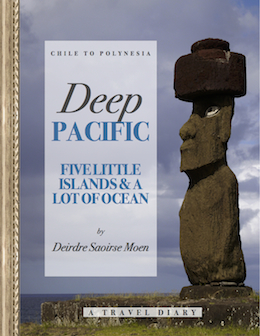Sochi: A Visit
06 February 2014
Last June, before I was really aware of Russia’s stance on LGBT issues (or how screwed up all kinds of things were), we visited Sochi. I was excited about it; in most cities, we visit stuff that’s long past, and this was the chance to see a city’s immediate future.
Well.
I think we all know what kind of a clusterfuck that is now, so I’ll show you what it was like eight months and a few days ago.
First, we came into port.

We drove around the Olympic village to be. Not very encouraging looking, is it?

Neither are the stadia anywhere near ready.


The international broadcast center. Note the ironic rainbow motif.

Then we drove two-ish hours into the mountains to visit the area where the ski events would be held. The climate up here was completely different; down in Sochi proper, it was miserably hot. As you see, the mountains still had some snow. The sides of the mountains also had, I kid you not, gigantic rhododendrons and enormous ferns. Not where the ski lifts would be, thankfully.


We rode up several gondolas to the tippy top, where we had hot chocolate. Sadly, I didn’t manage to capture a good photo of that.
Lots of buildings up in the mountains were unfinished, too, though most of what we saw would be for spectators rather than athletes.

But there were also some buildings that appeared to be complete, including the hotel where we had lunch.

Of the Russian cities I’ve visited (St. Petersburg, Sochi, and Novorossiysk), the one I’d find most interesting to return to would be Sochi (assuming Russia gets its head out of its ass on LGBT issues). It’s a very long city, with a region that stretches almost 100km along the Black Sea. As the southernmost part of Russia, and one of the warmest, it was where a lot of sanitoriums (read: spas) were built. Practically every industry had one, and these large, old sprawling manors and grounds were still kept up for the most part.
In particular, the Red Army (Voroshilov) sanitorium, designed by Stalin’s favored architect Meran Merzhanyantz, was on a steep (and long) enough hill to have its own funicular. (More pictures here.)
Historic photo:
Even before we returned home, our visit to Russia soured a bit with the next port, Novorossiysk. Turns out someone had gently chided them about taking so long to clear the ship in the morning. That led to an hour and a half delay re-checking everyone’s paperwork. Our two days in Russia required an impressive amount of bribes from the ship. The list of items was read off, but I only remember two:
- 18 trays of sandwiches
- a bottle of Johnnie Walker Black
Note: if you’d like to use my images for editorial purposes, contact me below and I’ll send you original sized images in exchange for photo credit. Thanks.
[contact-form subject=’Sochi Editorial’][contact-field label=’Name’ type=’name’ required=’1’/][contact-field label=’Email’ type=’email’ required=’1’/][contact-field label=’Website’ type=’url’/][contact-field label=’Comment’ type=’textarea’ required=’1’/][/contact-form]






